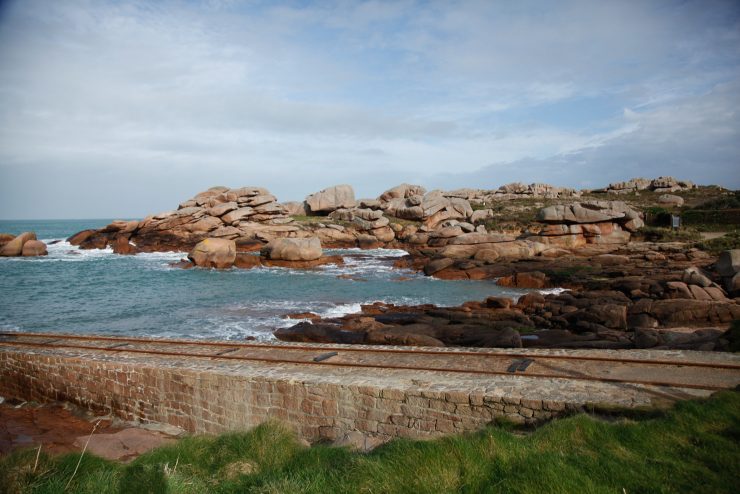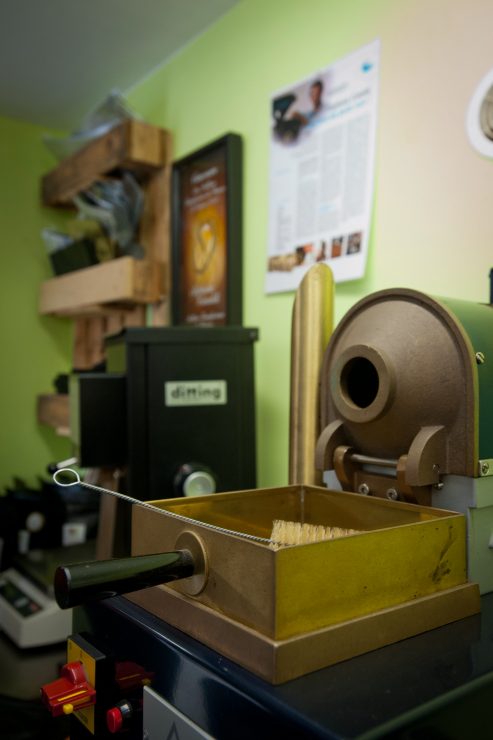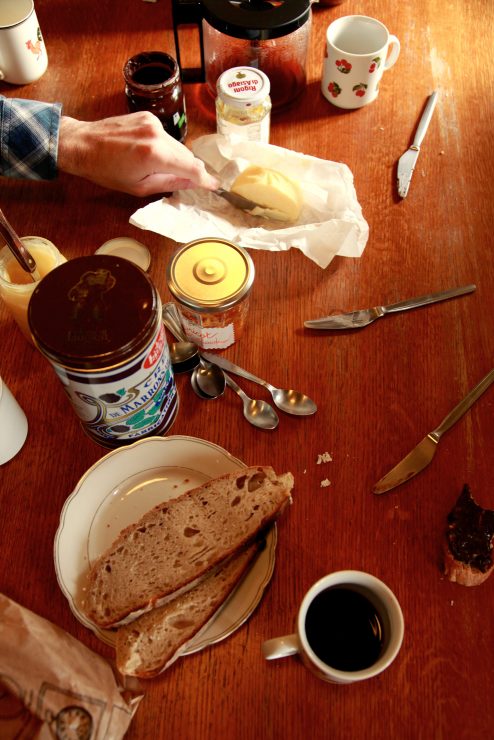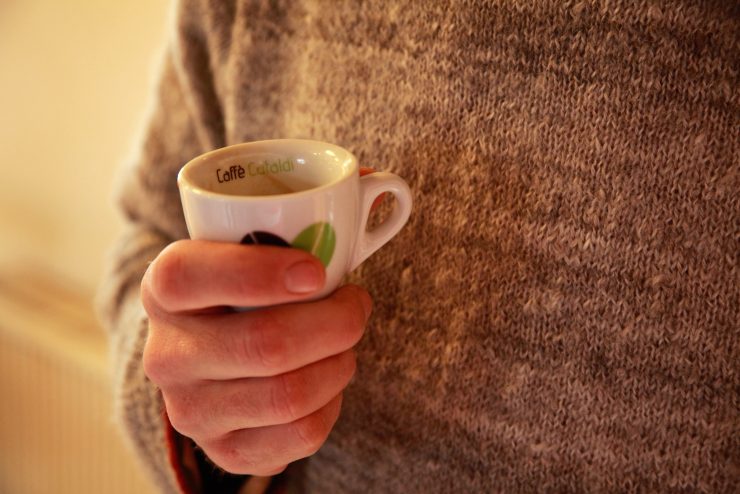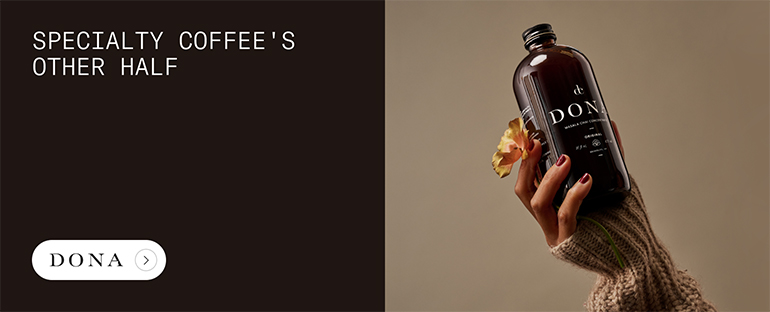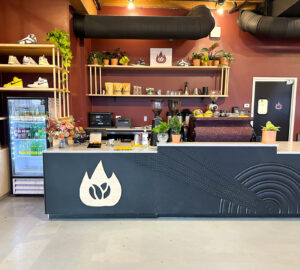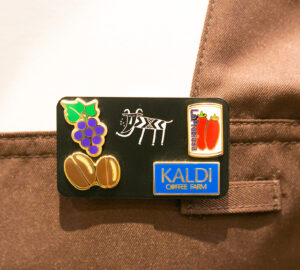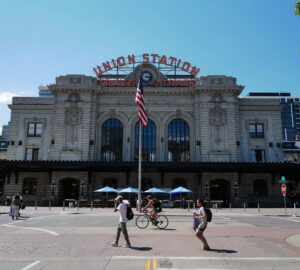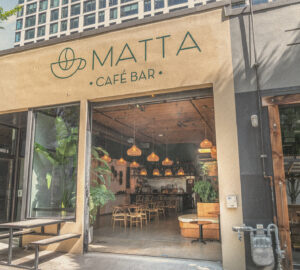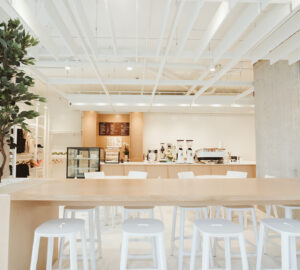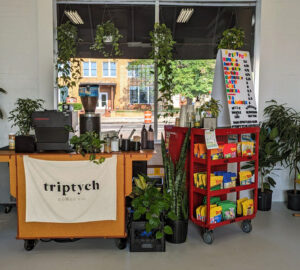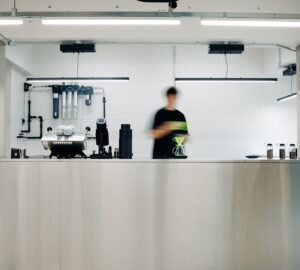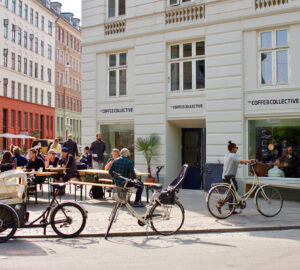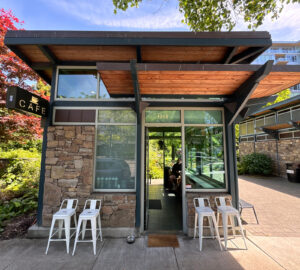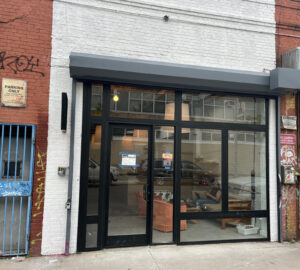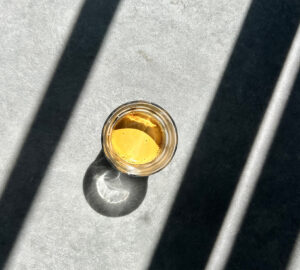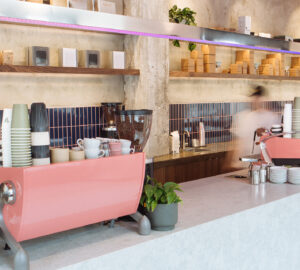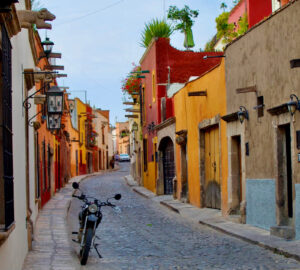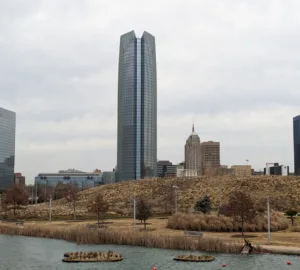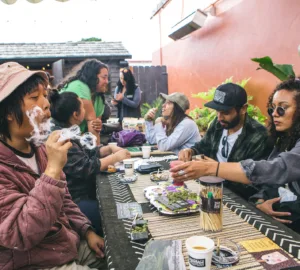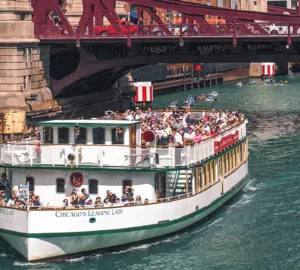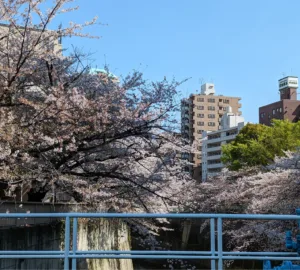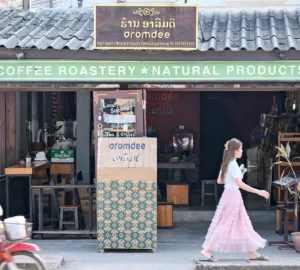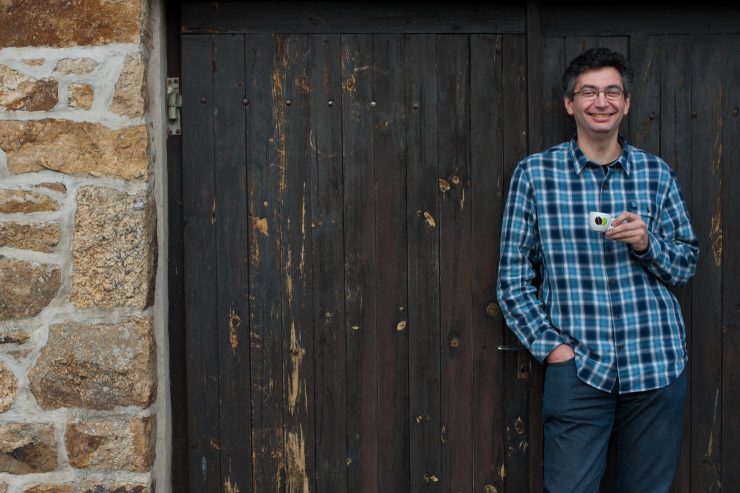
While a few years ago you could scoff at the quality of French coffee, that has come to change, and today, there’s a burgeoning specialty coffee movement that’s worthy of recognition. But when the outside world focuses on the French coffee scene, it’s easy to make it only about Paris. That’s not shocking. France is after all a country where Paris is the epicenter; if it’s not happening in the capital, then it’s hardly worth mentioning. Or at least that’s how it can often feel.
But little does the outside world know that one of the oldest French specialty roasters isn’t in Paris at all. He’s deep in the heart of Brittany, roasting and selling specialty coffee online since 2009.
I first heard of Stéphane Cataldi at Fragments. My pour-over was fantastic, and I asked Fragments owner Youssef Louanjli where the beans came from, as he has a regularly rotating selection.
Here I thought I was up to speed on the French roasting scene and he was giving me a name I didn’t recognize.
“He’s in Brittany.”
“There’s a specialty roaster in Brittany?”
This was as if I had been in Seattle 15 years ago and a well-respected coffee shop had told me that they had bought their beans from a roaster in Yakima. That there was a roaster in the middle of Brittany was unexpected and exciting. I was intrigued.
Cataldi graciously accepted when I asked if I could come and check out his roasting operation. He promised me it would be a relaxing weekend in the countryside, far from the madness of Paris. I’ll take any excuse to get out of the big city.
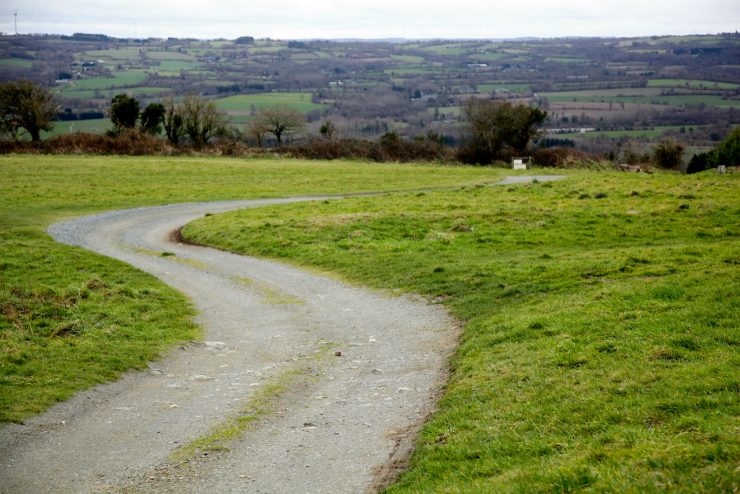
“It’s really out in the country,” Cataldi tells me, referring to his house as we drove from the train station in Guingamp towards the small village of Louargat, fewer and fewer houses alongside the road the further we drove. Eventually we pull up in front of a stone house, a pair of rubber boots sitting outside the front door and green mailbox with a small Caffè Cataldi sticker on it, the only visible indication that we were at a coffee roaster’s place. He warns that his dog might get excited by seeing visitors. I ask what the dog’s name is.
“Moka.”
Of course.
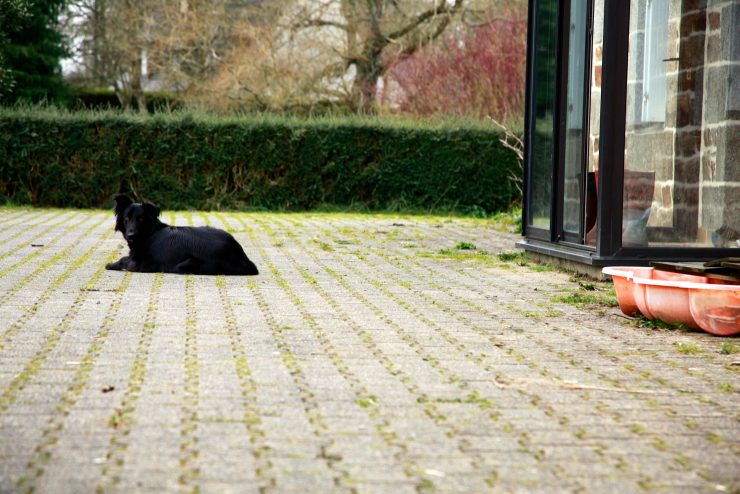
Cataldi didn’t always live in the Brittany countryside, surrounded by the fields and nearby rocky coast that this area of France is known for. Born to an Italian family living in Alsace, he spent the greater part of his professional career working in IT and living just outside of the Parisian center, in the suburb of Montrouge. With a regular routine of metro, boulot, dodo as the French say (metro, work, sleep), he started itching to do something else. Eventually he and his wife came to Brittany for a friend’s housewarming. Driving home from the weekend, they both decided that this was a place they could live. They returned to Paris and set the plan in motion.
This was 2008. Already a home coffee roaster, Cataldi had been debating launching his own business. He and his wife found a house big enough for them and their two children, with a garage big enough to be turned into a roasting space. In 2009, he officially launched Caffè Cataldi, an online specialty coffee shop. “I was sure that it was going to work,” says Cataldi. “The market was ripe.”
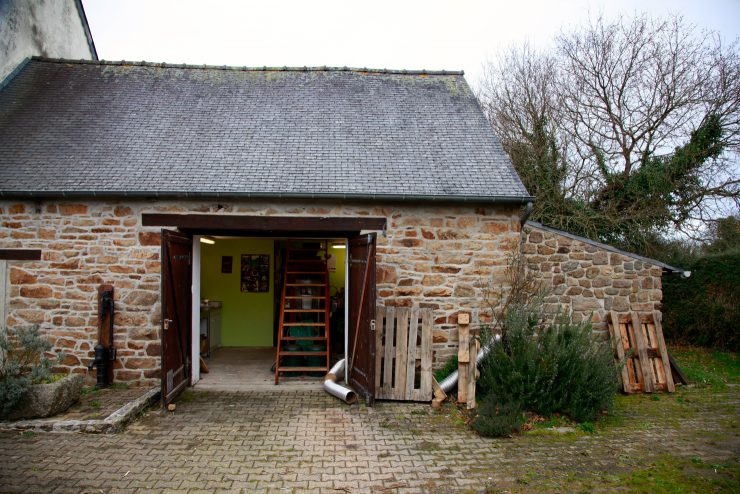
Cataldi was right. If there was a country that was in need of a coffee change it was France. Cafe culture is very much embedded in the French system, and France happens to be one of the world’s largest importers of coffee, but the market is dominated by companies like Kraft and Nestlé. Partly because of a history of colonialism, and duty-free imports, France was stuck importing predominantly Robusta, and while specialty coffee began taking off in other countries in the late 1990s and 2000s, the French coffee market lagged. There were no specialty roasters or coffee shops to be found in France, until a few years ago, when a revolution began happening, turning the French coffee scene on its head.
Cataldi had started roasting on his own because he didn’t like what he was finding on the French market. Having spent lots of time in Italy, he remembers thinking to himself, “In Italy, they make good coffee, and we make it the same way, and yet, it’s not the same.” This is a sentiment felt by many; I once had a friend tell me that working with people on the French-Italian border that they would cross over to France to get pastries and come back to Italy to get their coffee.
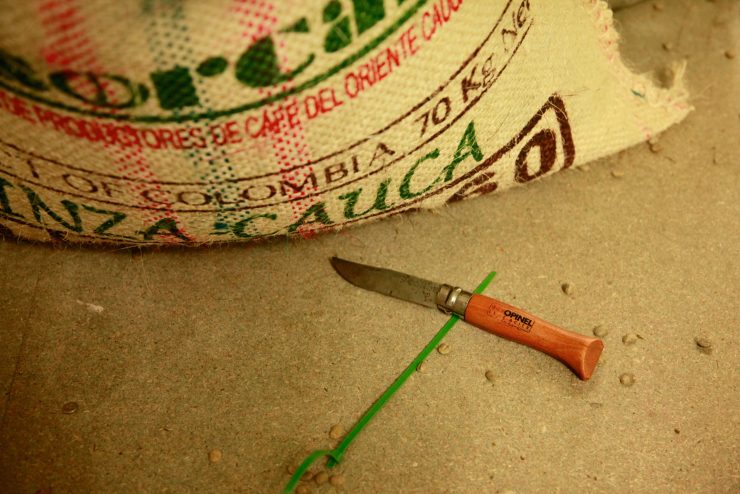
Wondering why the French couldn’t do coffee as well as the Italians even though the two countries were equipped with the same setup, Cataldi did what anyone would have done in the late 1990s. He went online. He stumbled across home roasting supplier Sweet Maria’s and a few coffee forums and started doing some research. He bought a small 80 gram home roaster, and roasted his first batch with his brother. They made a cup with their own roast and one with an average, French supermarket coffee. “We tried ours and thought, ‘well ok,’” recounts Cataldi. “Then we tried the other one, it didn’t have any taste, it was water.” He never looked back.
He started buying green beans from Has Bean to roast at home, figuring out what worked and what didn’t. From there he started working with Mercanta coffee importers and jumped into the world of selling specialty coffee, a world that he knew would please his fellow Frenchmen, particularly those that were looking for something different. “The first time they taste it,” Cataldi says of his own coffee, “they find what they’re looking for.”
Starting small, he has grown mostly thanks to word-of-mouth marketing. In his first year as a business he roasted around 600 kilos. Now he is up to 5 to 7 tons per year, roasting on a 5-kilogram Giesen, and while he supplies a handful of cafes and restaurants, most of his clients are individuals all over France that have found his coffee and never looked back. “I warn them, if they buy this coffee they’ll never be able to drink other stuff again,” says Cataldi.
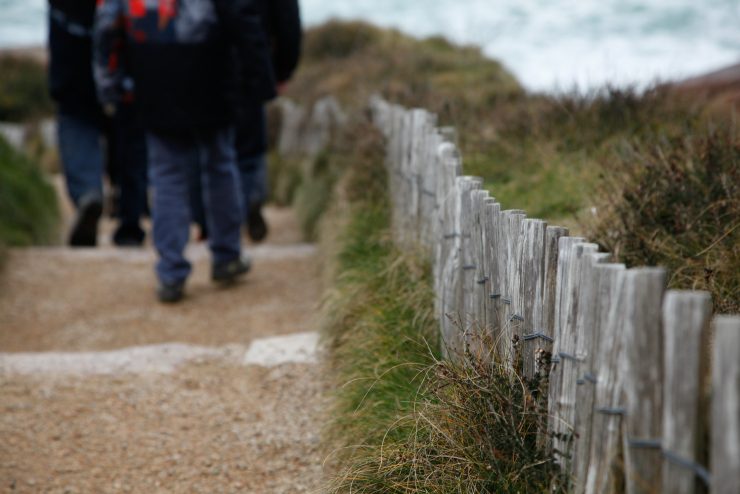
When we arrive on Saturday morning Cataldi’s wife, Annick, is out at the local market buying groceries. She comes back with local cheese and salted butter, a Brittany specialty, each wrapped in simple white paper, merlu (hake fish, deep-sea members of the cod family) for lunch from the poissonnier, a loaf of bread made with natural starter, and a bag full of buttery biscuits studded with almonds, made by the same baker who baked the bread.
The Cataldis are a part of the kind of local community that French dreams are made of, with access to the kind of local products that have made France’s culinary reputation what it is. When they are done with their coffee jute bags, those go to the fishmonger who uses them to transport lobster, and he often sells his coffee to the locals at the market. For anyone who thinks specialty coffee is an elitist thing reserved for the capital, go have a chat with Cataldi. “I wanted coffee to be accessible to everyone,” he says. Not being in Paris has allowed him to keep his production prices down, and he has focused on sourcing some of the best coffees in the world. “I’ve never followed a trend,” says Cataldi. He is simply committed to producing a quality product in the best way possible. “When I go to bed at night, I know the quality is there…I know I haven’t ripped anyone off.”
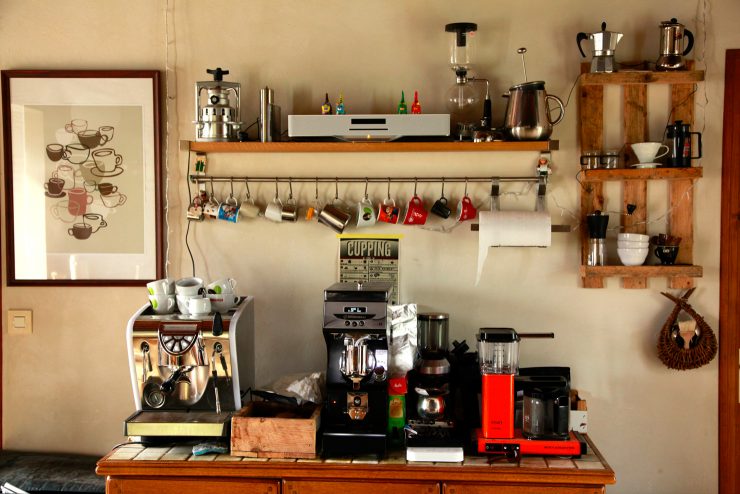
In his kitchen, he has a coffee lover’s dream set-up. A repurposed pallet hangs on the wall (Annick’s handiwork) showcasing all matter of brewing devices. For dinner, when he goes to carafe a bottle of red wine, he uses the carafe from a Bodum Bistro drip brewer. “You’re at a roaster’s house!” he exclaims. The next morning at breakfast he makes us a filter and busts out a jar of honey. His own, that he has made thanks to the beehive in the backyard.
With his devotion to quality sourcing (nowadays he works a lot with Nordic Approach and often buys Cup of Excellence beans) and roasting, Cataldi’s coffees have won several awards, including Meilleur Torrefacteur de France (Best French Roaster) and top spots at Brewer’s Cups in both France and Ireland.
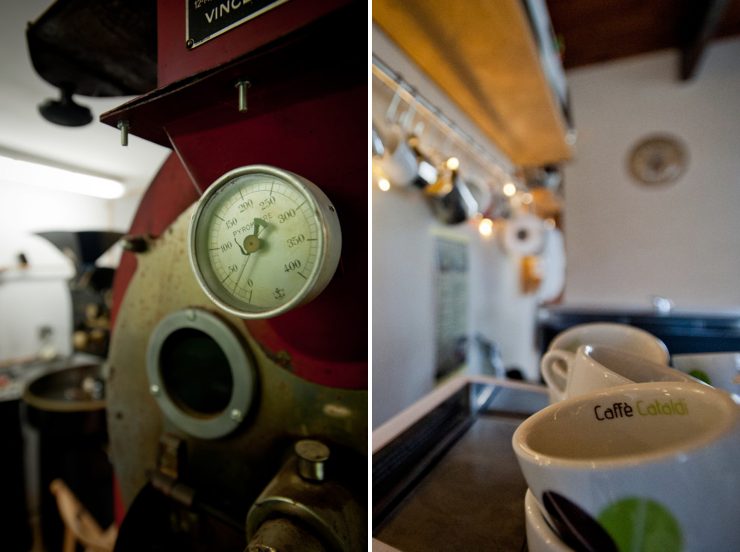
Not being located in Paris, however, has kept Cataldi a bit out of the limelight of the French coffee scene. Without a big presence in the Parisian market, there are only a few places that serve his coffee, although mention his name amongst the well-respected in the Parisian coffee crowd, and you soon realize that he is a bit of a legend. As one of the initial specialty roasters in France he has acted as a support system for many of the French specialty coffee players. He’s the kind of guy you want to get advice from, and he has lots of stories of people calling him for direction, or just a little kick in the pants to launch their own thing.
But now even Parisians are going to get a strong dose of Cataldi. Along with three other business partners, in late March he will open Hexagone, a new coffee shop in the 14th arrondissement of Paris, not far from the Montparnasse train station. This is a no man’s land when it comes to specialty cafes, and they’re hoping to pull in a local crowd, but also know that with what Cataldi calls the “coffee tourists,” they’ll attract the coffee aficionados of the capital. Because in this town, people will go a long way for a good cup. “I am sure that it’s going to work,” he says.
For Cataldi, a good business isn’t about flashy marketing, or an elitist approach. Like so many of his local producers in his Brittany community, it’s about committing to a good product and doing it well. In the end, his approach to roasting is as simple as his location, as he reminds me, “it’s only the quality in the cup that counts.”
Anna Brones is a Sprudge.com desk writer based in Paris, and the founder of Foodie Underground. Read more Anna Brones on Sprudge.












